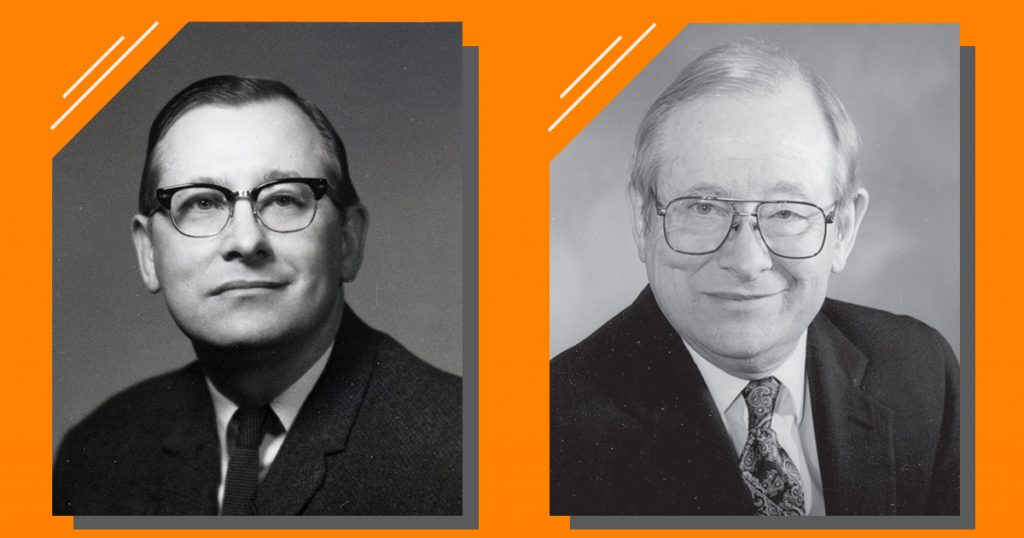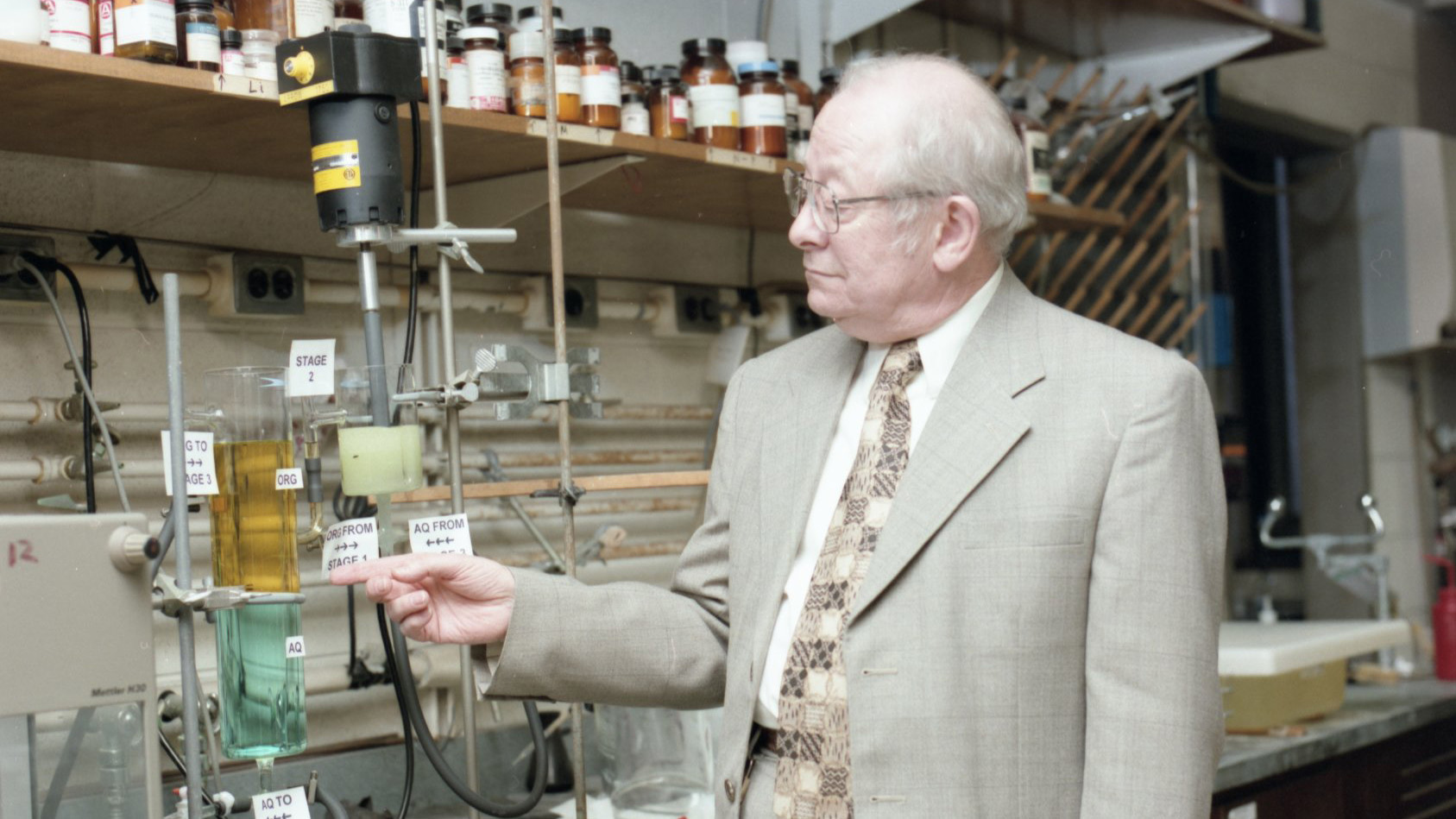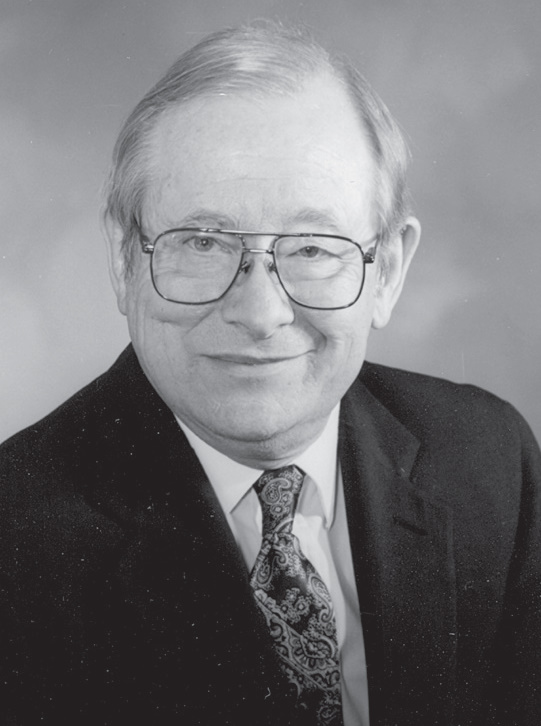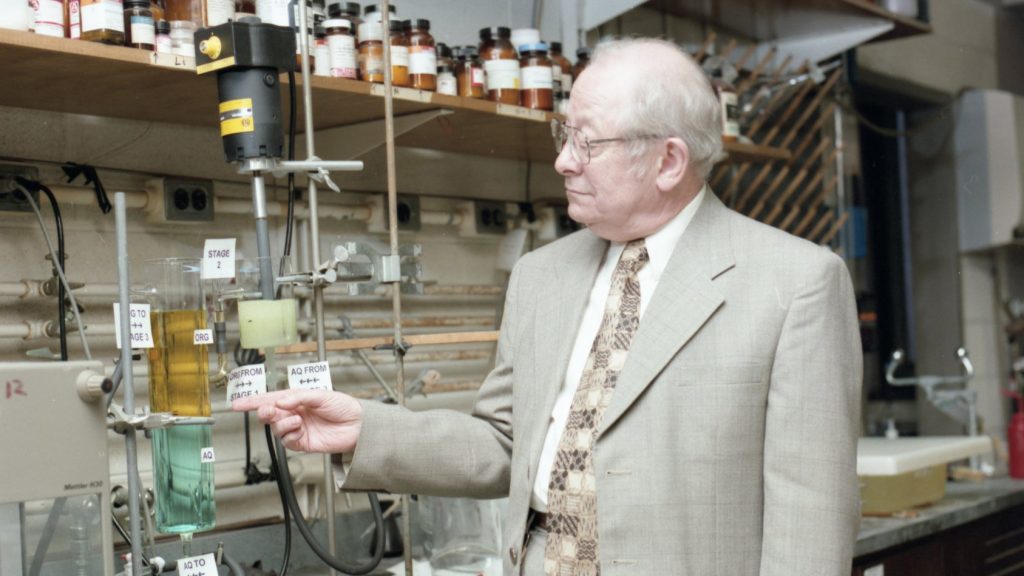Schweitzer Named World Record Holder

Professor George K. Schweitzer has been awarded the Guinness World Record for “Longest Career as a Professor.” Schweitzer joined the University of Tennessee’s chemistry faculty in 1948, beginning a career that ultimately spanned 76 years and 106 days.
In September of 2024, Schweitzer passed away. His family, inspired by a local news piece, reached out to Guinness World Records in October 2024 to begin the process of naming Schweitzer the record holder for longest career as a professor.
Tim Pratt, Schweitzer’s grandson, managed the application, which required submitting documentation in the form of official records, media articles, and photographs documenting Schweitzer’s career. Pratt received notice that the record had been awarded in late June 2025.
In a message announcing the record, the family stated “Along with the many other honors and recognitions that he has received, we are extremely proud that he has been recognized by Guinness World Records for his long, distinguished career, and his dedication to both his profession and the University of Tennessee.”
Schweitzer never fully retired from the chemistry department, insisting he had “recovered” from the entire idea. During his incredible tenure at the university, he mentored more than 140 graduate students. An insatiable scholar, he taught classes in the chemistry, philosophy, history, and nuclear engineering departments, and had the unique experience of teaching the grandchildren of previous students.
“He was a real legend, both in our department and at the university. Everyone knew him,” said Viktor Nemykin, professor and head of the chemistry department. “He was not only renowned as a great researcher and outstanding teacher and mentor, but he was also an historian.”
In addition to more than 150 academic papers and 17 books on chemistry, Schweitzer published a book entitled Chemistry at UTK: 1794-1987. In it, he meticulously catalogued the history of the department, including faculty members, curriculum, students who earned degrees, and even some of the earliest publications authored by members of the department.
Schweitzer’s contributions to the department, the university, and the discipline as a whole are incalculable, his academic legacy carrying on in the thousands of students he taught and mentored during his career. This record is one of many acknowledgements of Schweitzer’s lifetime of service and dedication to education and the pursuit of knowledge.



